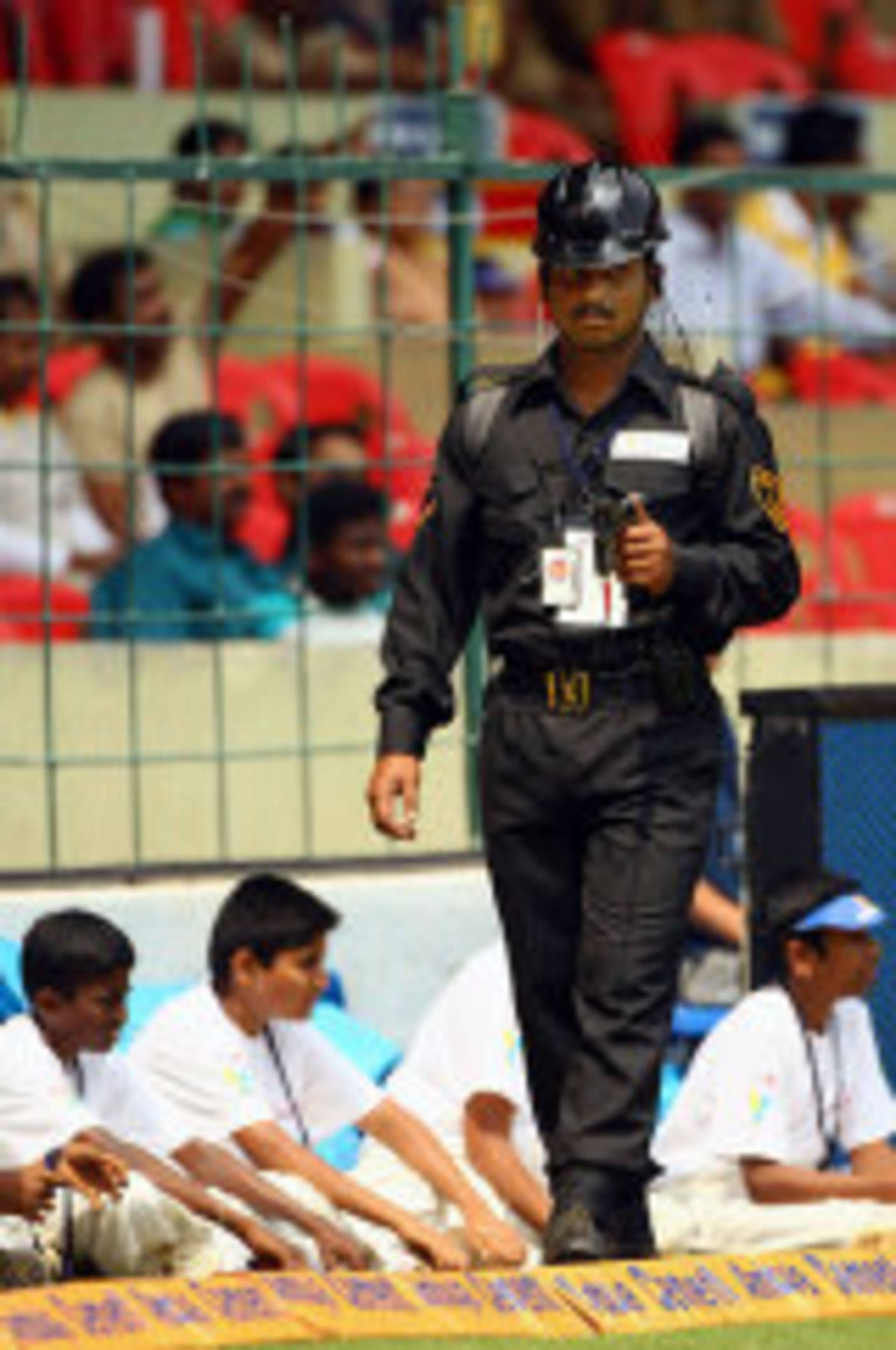BCCI needs a chief security officer
In the aftermath of Mumbai, the chief concern is to protect international cricket from the uncertainties arising from terrorism
Nishi Narayanan
25-Feb-2013

Getty Images
In the aftermath of Mumbai, the chief concern is to protect international cricket from the uncertainties arising from terrorism. The terrorist is unpredictable, and does not respect geography or nationality. You will have to factor this into your planning, writes RK Raghavan, a former director of India's Central Bureau of Investigation, in the Hindu.
The need of the hour is not only tight security at the grounds but careful choice of venues. The BCCI has been playing populist politics. On paper it seems to be a good idea to take cricket to unconventional places. However, such a strategy exposes cricketers to risks because of divergent standards of arrangement and quality of law enforcement. In some States, the police forces are not exactly known for their professional skills ... Fundamental, of course, is strict access control to dressing rooms and hotel rooms. The Oval has a permanent space for a control room for the Met. Can the BCCI make a similar provision at least in the major venues? It will help infuse confidence in foreign teams. A full-time chief security officer could guide the BCCI in what has become a specialised discipline.
Arthur Turner, in Sport24, writes that the ICC needs to be more pragmatic in a security crisis and he gives the example of its handling of the Champions Trophy.
The tournament should have been rescheduled immediately in another country once it became obvious that Pakistan was not safe to host the tournament. By postponing it they have just created confusion and compounded the future scheduling problems of international cricket.
The Guardian's Richard Williams believes the swiftness of England's return home after last week's attacks in Mumbai suggests the party lacks the sort of authoritative leadership capable of advancing preferable options.
I don't think they're fainthearts. I just think they're indifferently led and prey to the delusions that tend to affect the behaviour of English sportsmen when they enter the celebrity bubble. If the Foreign Office says that the situation is too dangerous, then of course they should stay at home. But I can't help remembering the absurd precautions taken to guard England's footballers during the last World Cup - the helicopter escorts, the squads of mounted police and the street closures that caused inconvenience to bemused German motorists - and I wonder about the quality of the advice the cricketers are receiving from those whose careers are, to some extent, dependent on the existence of a threat.
The editors at Indian Express believe sport is the epitome of the ordinariness, the joy and security of everyday life and in India that representative sport is cricket so it is only fitting the England team return for the Tests.
If Andrew Flintoff and Steve Harmison choose to opt out of the Test series they can kiss goodbye to the millions pending in the Indian Premier League in-tray, writes Kevin Garside in the Telegraph.
Do Flintoff et al imagine that in five months’ time, India will be any less vulnerable to terrorist episodes, any less of a target? Or that an efficient anti-terror mechanism might be fashioned by the Indian authorities by April? No chance.
Also read Sambit Bal's views on why India must tour Pakistan on cricinfo.com.
Nishi Narayanan is a staff writer at ESPNcricinfo